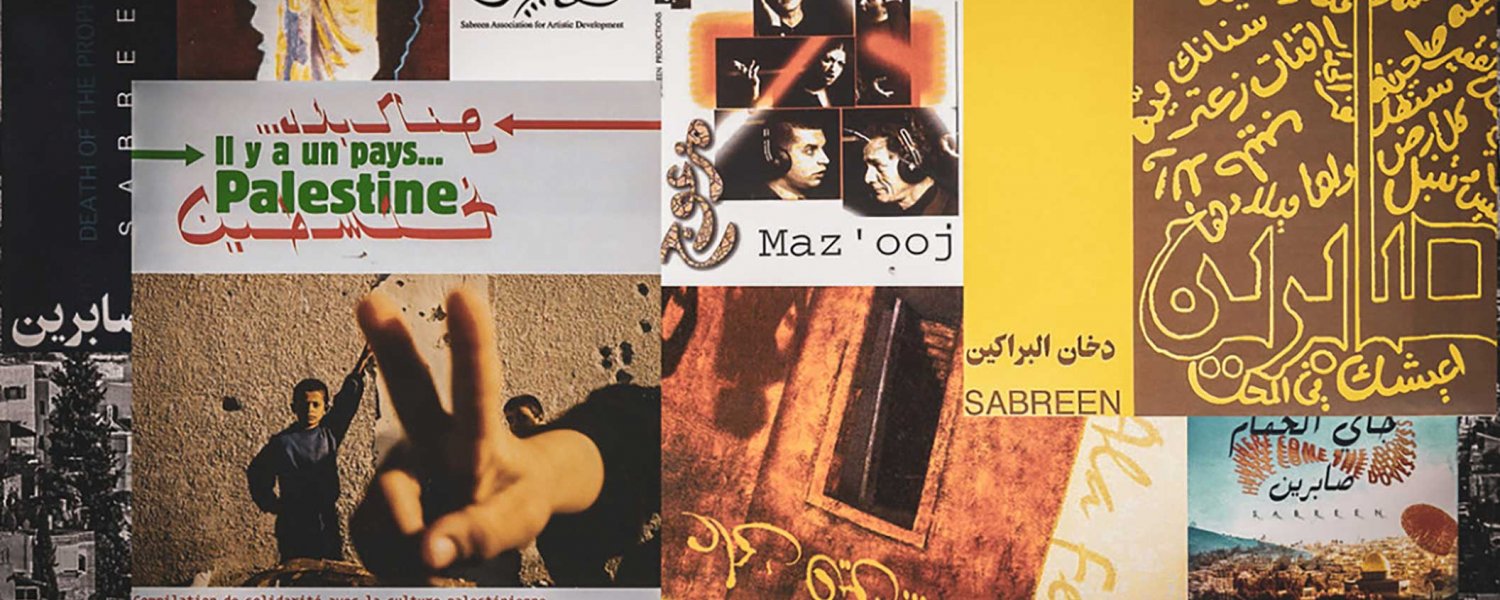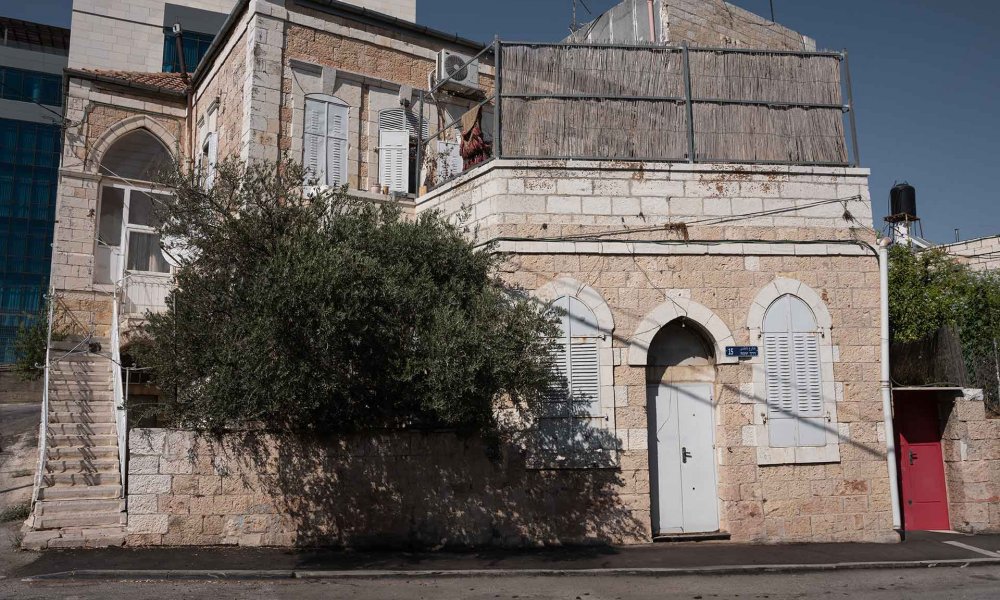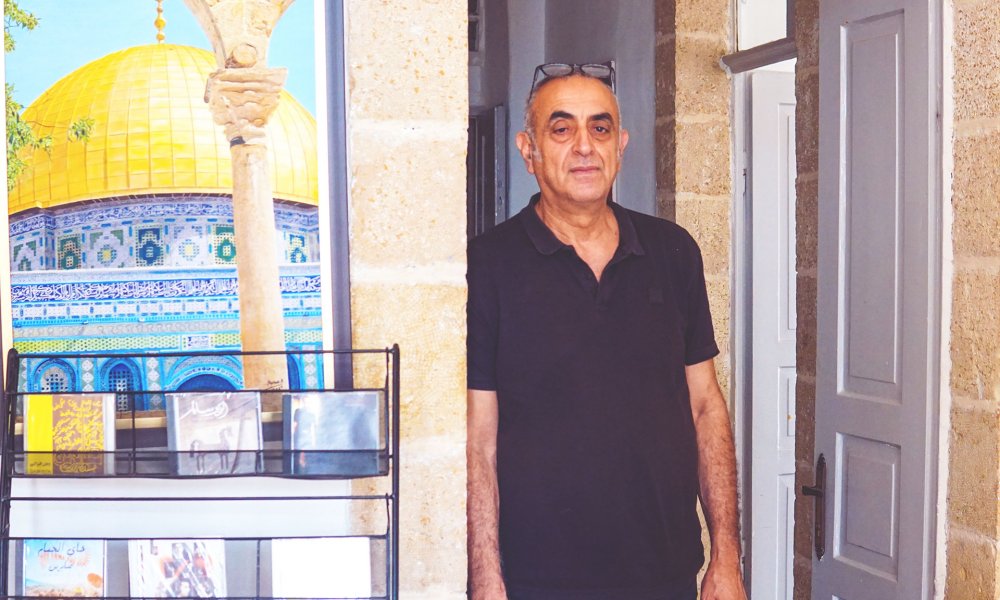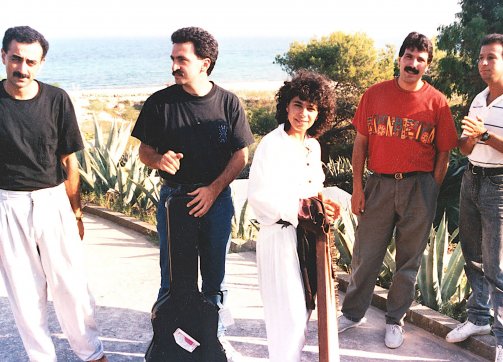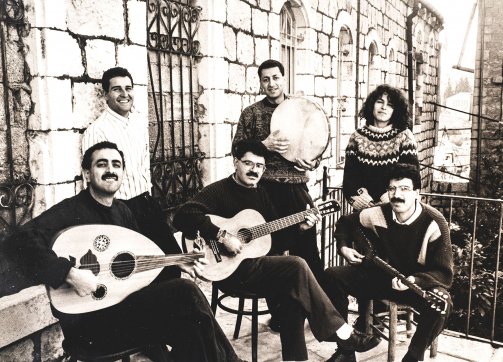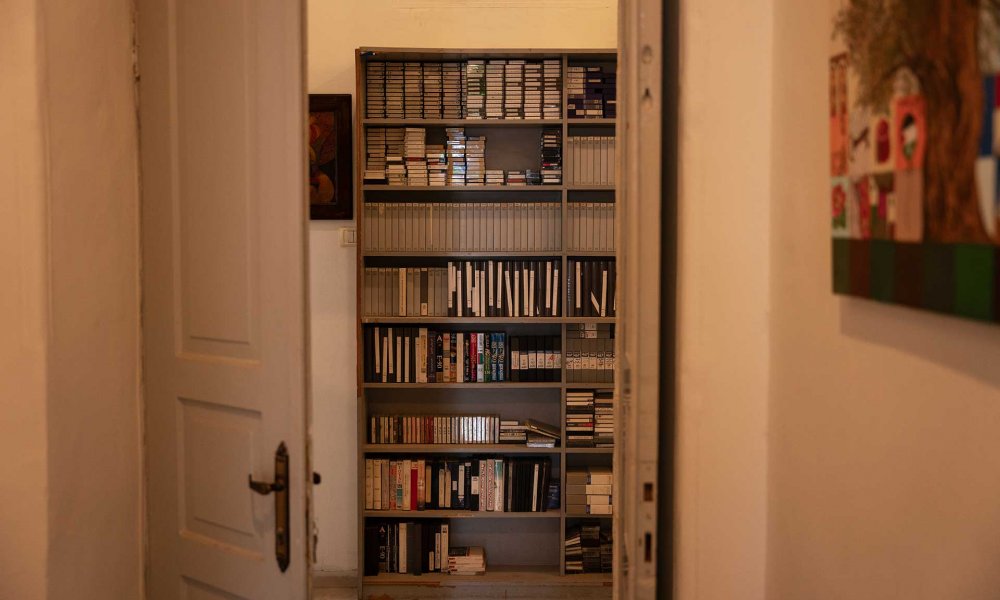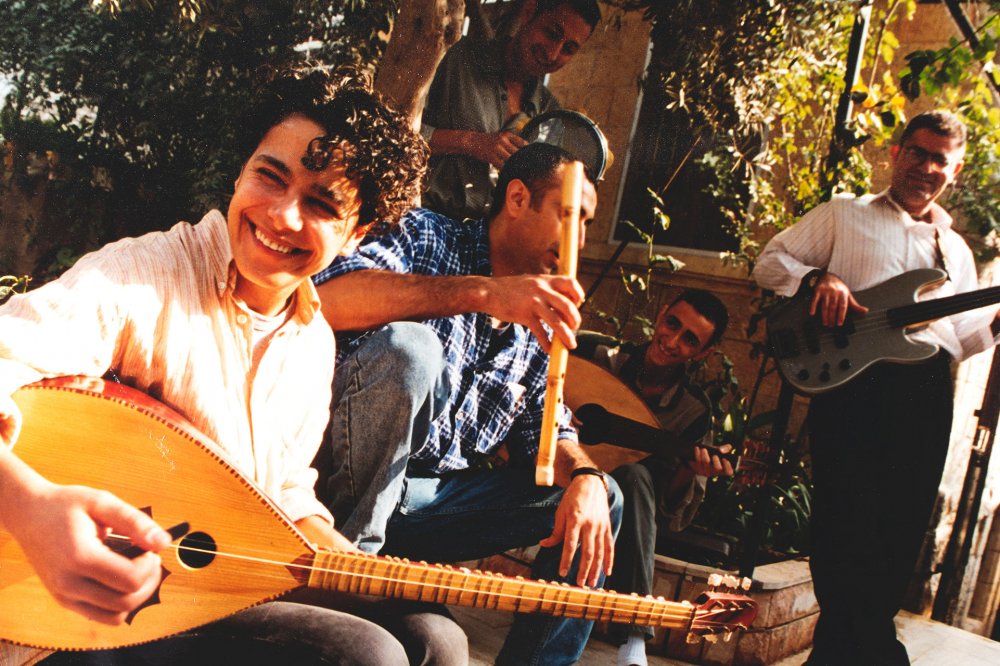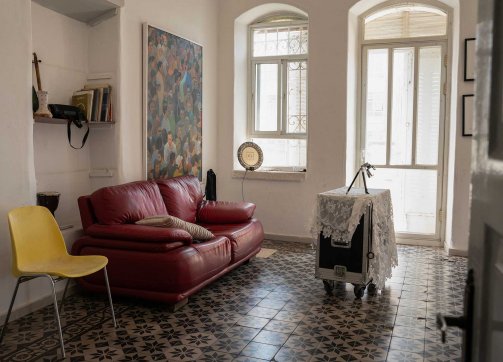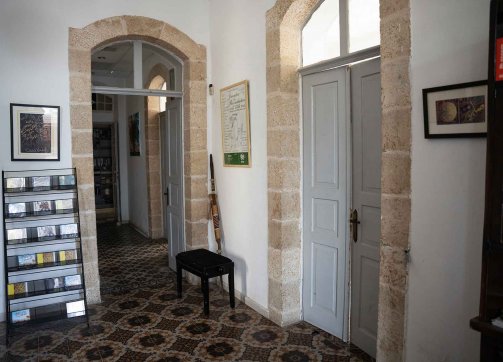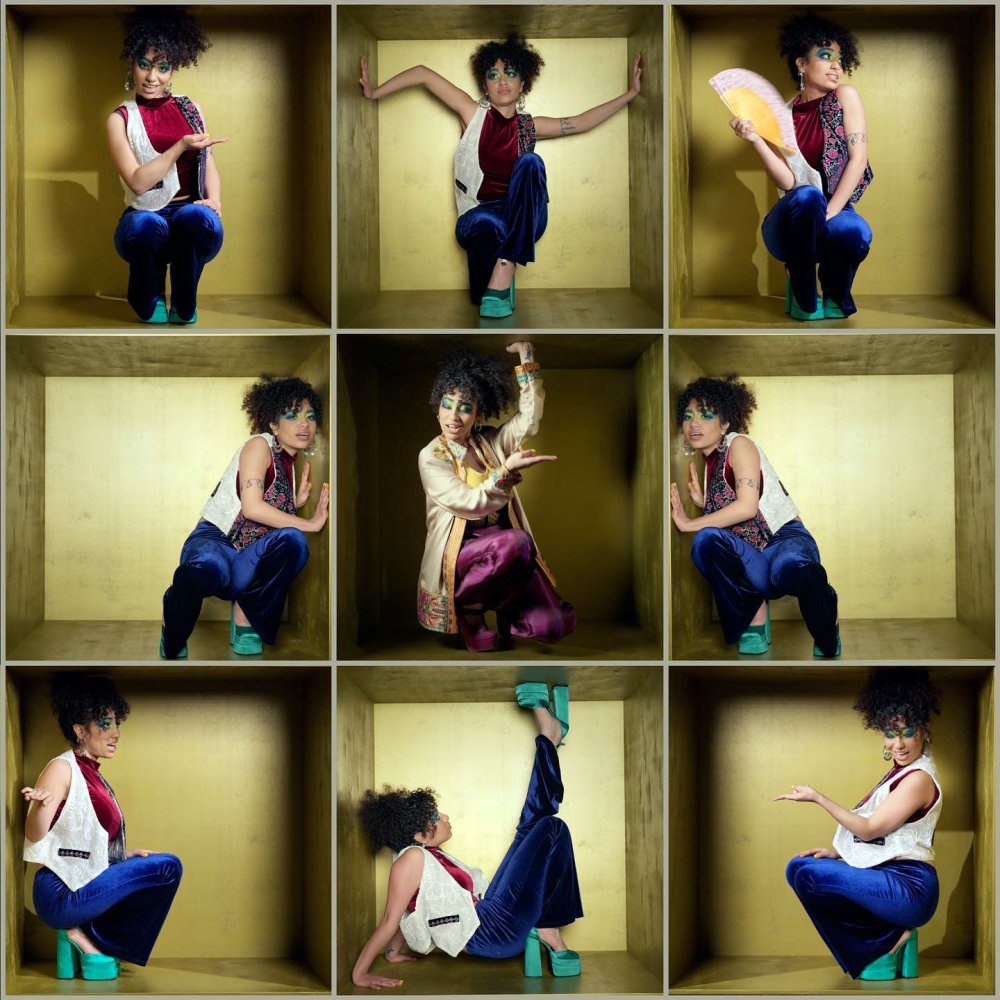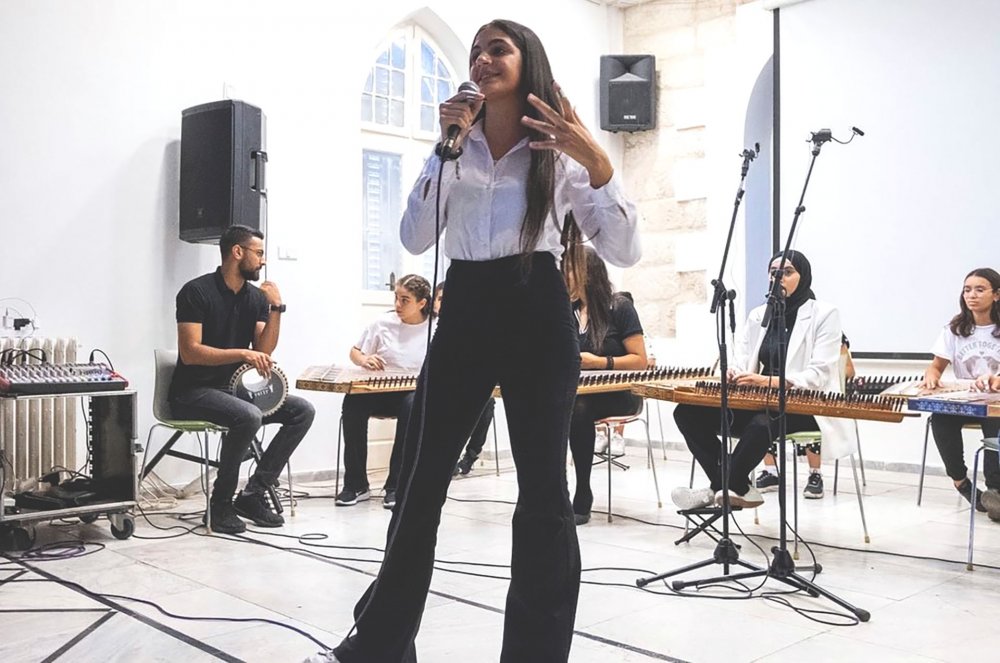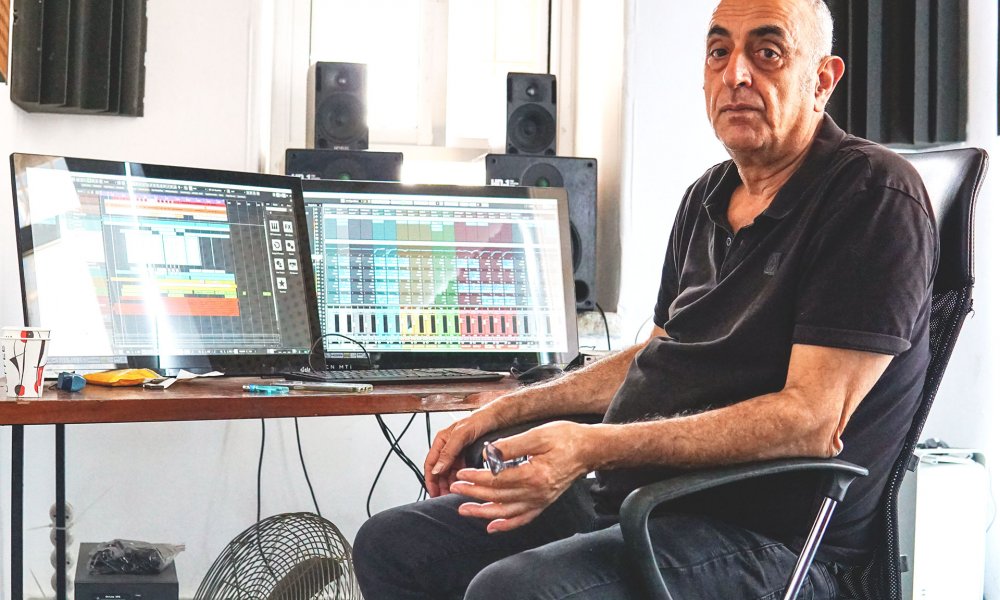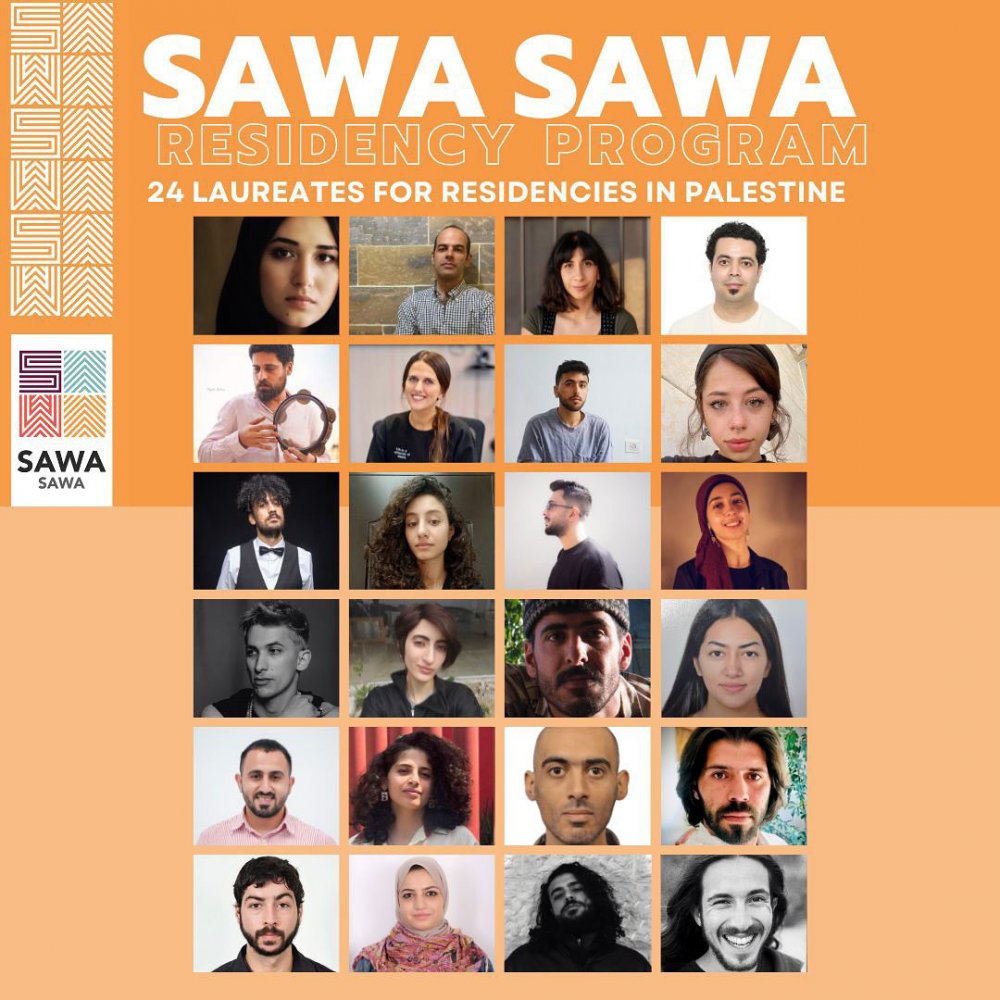Renowned Palestinian musician and composer Said Murad does not have a long commute to work—it takes approximately 40 seconds to walk from his Sheikh Jarrah home in East Jerusalem to his new studio space. “Not bad, eh?”1 Said says as he points to his house from the balcony of Sabreen Association for Artistic Development, a nonprofit community-based organization that focuses on music.
Sabreen’s latest reincarnation is on the top floor of a white building in Sheikh Jarrah and consists of a studio, event space, balcony, and office. This is the second time the organization has moved in the same number of years. Sabreen used to have a legendary event space with a garden, but they had to close in 2022 when their funding was pulled during the coronavirus pandemic, and they’ve been somewhat nomadic ever since.

